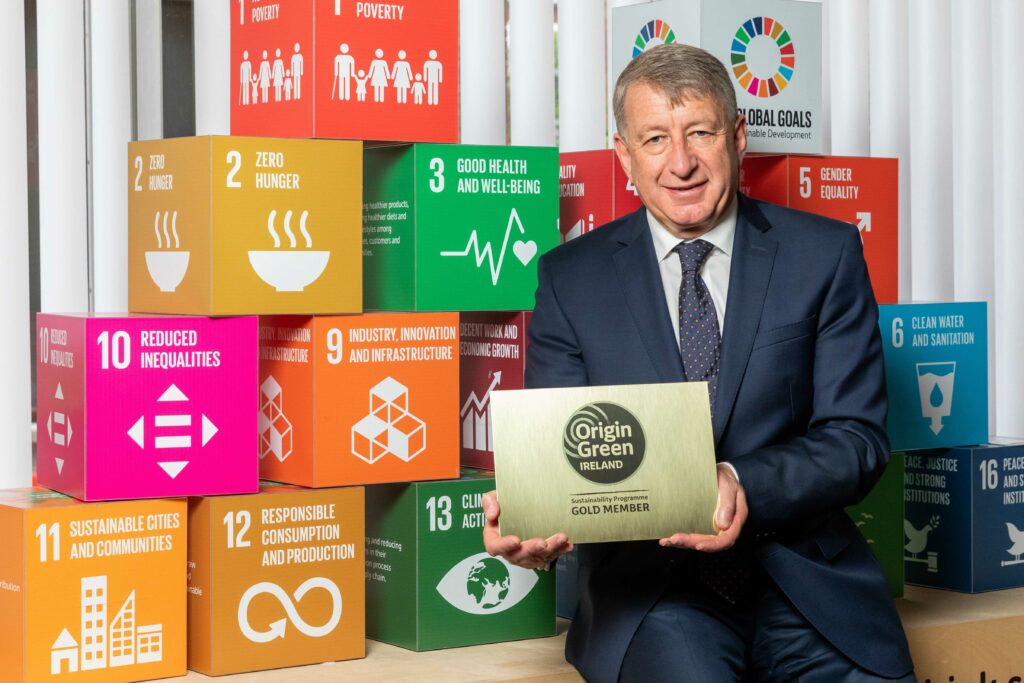Kepak Group has announced today (Monday, December 11) that its ambitious targets to reduce its operational carbon emissions from electricity and fuel consumption have been validated by the Science Based Targets Initiative (SBTi).
This means that Kepak’s targets are in line with reductions required to keep warming to 1.5°C.
Kepak’s targets include reducing its Scope 1 (fuel consumption) and Scope 2 (electricity) emissions by 50.4% (20,057t of carbon dioxide – CO2) by 2030, which is enough energy to power over 2,500 homes for a year.
Kepak
Separately, Kepak said it is also committed to reducing its Scope 3 (purchased good and services) by 30% (887,164t of CO2) by 2030, which is the equivalent to the average annual emissions of 197,421 petrol cars.
Kepak’s head of sustainability, Margaret Berry, said: “We at Kepak are proud to have our ambitious carbon reduction targets validated by SBTi.
“As a business, we believe that sustainability should not be a side-line effort; it should be part of everything we do.
“That is why we commit to working with our industry peers and supply chain to ensure we minimise our impact on the environment, whilst safeguarding animal welfare and producer livelihoods,” she added.

“While we have made significant progress towards achieving our targets, we are constantly assessing new ways to reduce carbon emissions across our business and will never become complacent in our endeavour.”
Emissions reduction
In terms of progress, Kepak said it has reached a 24% reduction in its Scope 1 and Scope 2 emissions since 2018.
Contributing to this has been the establishment of a holistic Energy Management Framework and strategic plan aligned to the Group’s SBTi and Origin Green commitments, according to the company.
The framework covers a wide range of initiatives to address site efficiencies, heat recovery and electrification as well as a move to on-site energy generation.
Kepak also recorded a 5% reduction in Scope 3 emissions in 2022 compared to 2018 figures.
Its Scope 3 emissions includes raw materials, packaging and non-product goods and services.
The company said that it is also actively addressing emissions in its supply chain through the innovative Twenty20 Beef Club, a calf-to-beef programme developed in collaboration with Tirlán.
Having processed more than 30,000 cattle, the Twenty20 Beef Club promotes sustainability and support farmers investing in improving genetics and producing high-quality beef.
This is achieved through adherence to specific production protocols designed to reduce carbon emissions.
Kepak has also sponsored, hosted, and collaborated in multiple events and initiatives to promote and educate on sustainable farming practices within the community or their local communities, including with schools and colleges.

Meanwhile, Kepak Farm is also spearheading new sustainable farming practices, including capturing methane emissions from the cattle using Greenfeed Technology, in conjunction with Meat Technology Ireland and the Irish Cattle Breeding Federation (ICBF).
Kepak Group has a turnover of €1.8 billion and employs over 4,500 people, operating 13 manufacturing facilities throughout Ireland and the UK with sales offices in Europe, the US and Asia.
